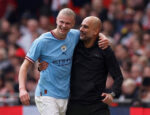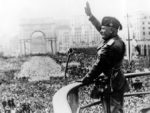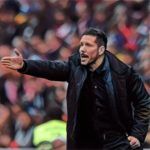At the Start
With the exception of a 2nd place finish to Helenio Herrera’s Atlético Madrid in 1948/49, Deportivo La Coruña have historically plied their trade in Spain’s second division since their inception in 1906. For a large portion of the 20th century, they were most famed for producing two Spanish legends: Amancio Amaro, who would go on to win the European Cup with Real Madrid in 1965/66, and Luis Suárez, the only Spanish-born player to have won the Ballon d’Or in 1960.
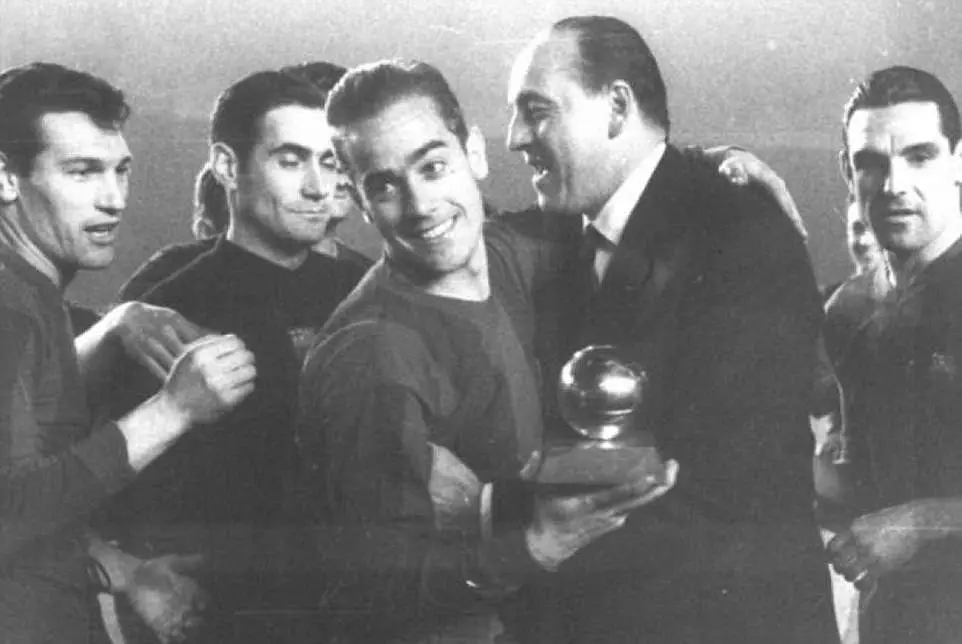
When Depor were relegated from La Liga in 1957, they spent the next 30 years struggling. Yo-yo’ing between the first and second division in the 1960s, they soon found permanence in the latter come the start of the 1970s. Over a fifteen-year period (’73 – ’88) Depor would struggle, twice falling into Spain’s third tier (’74 & ’80), but immediately bouncing back up.
The Turning Point
The turning point in Deportivo’s history is widely considered to be the 1987/88 season in which they narrowly avoided relegation thanks to a last-minute goal. Come the end of the season Depor were estimated to be 600 million pesetas in debt; having come so close to the drop coupled with their financial troubles, sparked change. Enter Augusto César Lendoiro, who was democratically elected president and tasked with heading the club in a positive direction.
In 1988/89 they finished 11th while the following season saw Lendoiro bring in new transfers and challenge for a promotion play-off spot; ultimately losing out against Tenerife – the deniers of titles. Nonetheless, Deportivo were heading in the right direction. Their debts had been halved in the space of two years and the 1990/91 season ensured promotion as they finished 2nd; the Branquiazuis were back in La Liga for the first time since 1973.
Back in La Liga – Súper Dépor
Scarcely surviving a relegation battle in their first season, Deportivo astonishingly began challenging for the title. In many parts, thanks to their recruitment, the Brazilian spine of Bebeto, Mauro Silva, and Donato complemented the Spanish width of Fran, Adolfo Aldana, and Luis López Rekarte and brought home 3rd, 2nd and 2nd in consecutive seasons. Had it not been for a last-minute penalty miss against Valencia in the final game of the season, Depor would have been crowned champions in 93/94. Nonetheless, they remained resilient and brought home their first piece of silverware in the form of a Copa del Rey in 1995; edging out Valencia in a replayed 2-1 win.
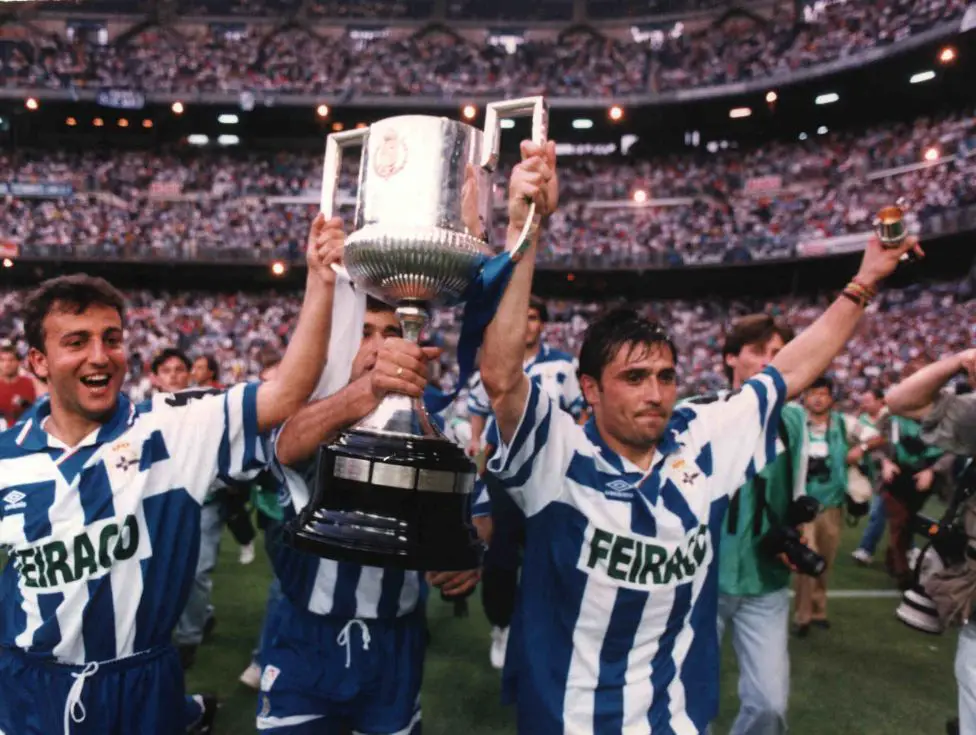
A 7-year television deal with Canal+ brought in €135,000,000 exclusively to Deportivo in 1996/97 after a disappointing season (finished 9th in 95/96). An influx of transfers were brought in. Most notably Rivaldo, who, after reportedly signing for Parma following the 1996 Olympics for £2,500,000, decided to move to Spain instead. Additionally, Portugal became the main scouting area as current Wolves manager Nuno Espirito Santo, future Spurs player Noureddine Naybet and Hélder were all brought in from Portuguese clubs.
Embed from Getty Images
Rivaldo would impress in his debut campaign, scoring 21 goals – over a third of Depor’s league tally – and carrying them to a flattering 3rd place finish. Rivaldo had caught Barcelona’s eye and the subsequent season would see him poached on deadline day for £21,000,000, leaving little time to adequately replace him. What culminated was a disappointing season where they never once broke into the top half of the table, finishing 12th and only reaching the Copa del Rey Quarter-Finals.
Javier Irureta – The Man Who Would Bring Them Success
Lendoiro appointed Javier Irureta at the start of 1998/99 season, having impressed with neighbors Celta Vigo in finishing 6th with a mid-table budget. Irureta was given creative freedom with regards to his transfers and thus chose to bring in Gabriel Schurrer, Turu Flores, Pauleta, Manuel Pablo, and Enrique Romero – many of which would play a vital role in the coming seasons.
Irureta’s tactical preference for 4-2-3-1 suited Depor well with the ever-reliable Mauro Silva slotting into one of the double pivot’s and the turbulent Djalminha occupying space between the lines as a 10, while the width of Fran and overlapping runs Enrique Romero provided key chances for Turu Flores. The season began poorly with Depor taking a while to find their feet, bouncing their way up and down the table; having been 2nd on week thirteen but dropping to 12th four weeks later. The ship would become steadier and an improvement in results would see them finish a respectable 6th, missing out on Champions League football by two points and reaching a Copa Del Rey semi-final.
Lendoiro prompted yet another wave of investment in the summer of 1999. In a busy Spanish transfer window, which would see Jari Litmanen and Simao Sabrosa move to the Camp Nou, Nicolas Anelka and Steve McManaman to the Santiago Bernabeu, Jimmy-Floyd Hasselbaink to Atletico Madrid and Samuel Eto’o part for Mallorca, Deportivo would usher in the players that would propel them into football folklore. Cesar Martin from Oviedo, the creative Victor Sanchez from Racing Santander and the clinical Roy Makaay and Slavisa Jokanovic, both joining from impressive Tenerife campaigns.
Roy Makaay got off to a brilliant start as he scored a hat-trick on his debut in a 4-1 win over Alaves at Riazor. One win from their next four slumped Deportivo to 7th place however results were steadily improving. After a 2-0 defeat to Valencia, they bounced back with an enormous morale-raising 2-1 victory against Barcelona, kicking off a 7-match winning streak in which they shot into a 1st place spot they would never relinquish.
Yet it was no smooth sailing. Nervous performances resulted in one point from the next four games as a Savo Milosevic-inspired Zaragoza closed in. Depor maintained their lead as Barcelona shuffled past Zaragoza, ever-closer following a 2-1 defeat at the Camp Nou. Despite being so closely followed, Depor never cracked, consistently keeping up with Barca and Zargoza. Louis Van Gaal’s Barcelona would crash at the final turn, two draws and a loss in their final three games, almost conceding 3rd place to Valencia, if not for H2H Goal Difference. Súper Dépor, meanwhile, secured their first league title in their history – just over 20 years ago on 19th May 2000 – as Roy Makaay and Donato secured a 2-0 win over Espanyol.
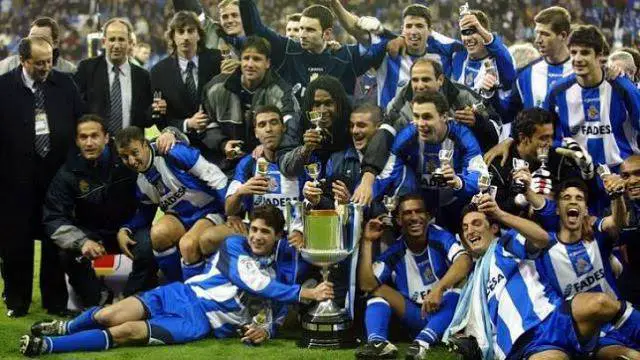
Post-Title Win
With Florentino’s ascendancy to the Real Madrid presidency and the start of the Galáctico’s era, Deportivo would fail to win La Liga once more. In an incredibly busy transfer window, which included Luis Figo infamously switch Barca for Madrid, Marc Overmars, who was expected to fill Figo’s boots, at the Camp Nou and Roberto Ayala, Pablo Aimar and Didier Deschamps all arrive at the Mestalla from abroad, many of La Liga’s team strengthened. Except for maybe Real Oviedo, who signed Stan Collymore from Bradford.
Deportivo themselves would look to improve their squad in preparation for the upcoming Champions League. Francisco Molina, Joan Capdevilla, and Juan Carlos Valerón all arrived in a fire-sale from a recently-relegated Atletico Madrid. Aldo Duscher was brought in to eventually replace the aging Mauro Silva whilst Diego Tristan and Walter Pandiani added to the attacking depth.
Save for another Copa del Rey triumph, in which Real Madrid were beaten at the Santiago Bernabeu on their centenary, in 2001/02, Depor would endure almost identical seasons following their title win. 2000/01 and 2001/02 would see them place 2nd whilst finishing seven points behind the league leaders, Real Madrid and Valencia respectively, and exit the Champions League in the quarter-final stages at the hands of English opposition; Leeds in 2001, Manchester United in 2002.
The Entertainers
The 2003/04 season was Súper Dépor at their most entertaining. A 2-0 win at the Camp Nou and another of the same result against Real Madrid at Riazor were matched by a record-breaking (at the time) 8-3 group-stage loss to Monaco, in which Dado Prso scored 4 goals. Narrowly scraping through the group-stages, Deportivo shuffled past a Juventus side including Del Piero, Antonio Conte, Pavel Nedved, David Trezeguet, and many more, with a 2-0 aggregate win and faced reigning champions AC Milan in the quarter finals.
After Walter Pandiani gave Depor an early 11th-minute lead, AC Milan struck back with ferocity. Two goals from Kaka and one apiece from Shevchenko and Pirlo had all but secured a place in the semi-finals with a 4-1 win; after all, no team in Champions League knockout history had ever turned around a 3-goal deficit.
Irureta’s nothing-to-lose all-out attacking policy inspired one of the greatest comebacks in Champions League history. A magical night at Riazor had seen Deportivo up 3-0 by half time, with substitute Fran completing the route in the 76th to send the reigning champions home. Deportivo were to face Porto in the semi-finals, but it was not meant to be. Much like 10 years prior, their fate would be decided by a penalty – this time by an opposition player as Derlei slotted home to send the eventual winners to Gelsenkirchen.
Decline
Unfortunately, this would be Deportivo’s final season of excellence and mark the start of their decline. Their 2004/05 Champions League campaign ended failing to score a single goal, dead last in their group. Domestically, they placed 8th in the league while crashing out of the Copa del Rey in the Round of 32. Sid Lowe wrote towards the end of that season: “It’s hard to avoid the feeling that this is the end of an era at Riazor, to escape the sense of stagnation, boredom, and decline. It’s all gone flat.” Irureta, the man at the helm of Depor’s successful years, would leave in 2005 amid reports of an unhappy squad, alleging that Djalminha even headbutted the coach.
The title-winning 1999/00 season would, unfortunately, be Deportivo’s zenith. Although they remained competitive in the first half of the decade, the second half would see Deportivo slowly lose their grip on the top spots as they descended into mid-table mediocrity, hovering between 7th and 13th.
Much of the club’s finances dried up due to increasing debts and many of their star players left: Luque, Naybet, Tristan, Djalminha, Mauro Silva, Makaay, Víctor, Pandiani, Capdevila, Duscher, Donato, Andrade and Fran had all come and gone by 2008 in order to keep on top of payments, and Lendoiro would shift his focus to recruiting youth: a telling sign there was little money in the bank.
The start of the next decade would fare much worse. In 2011, Deportivo were officially relegated following a home defeat to Valencia – the same team that denied them the title 17 years earlier. Multiple relegations and promotions have seen the Branquiazuis become somewhat of a yo-yo club the past decade with them now sitting in 19th place, fighting relegation to the Segunda Division B; a notoriously difficult league to get out of, with 4 promotion spots up for grabs for 80 teams.
The recent appointment of Fernando Vasquez has been something of a revival. Sitting bottom of the table at his appointment, having won only 2 from 22, Vazquez won 6 from his first 6 in charge, propelling them up to 19th and only 1 point from safety. With Spain’s second division being given the go-ahead by the Spanish Prime Minister, everyone’s eyes are now on Depor to see if they can survive relegation.
This post first appeared on Reddit by u/-HeyMrRager


